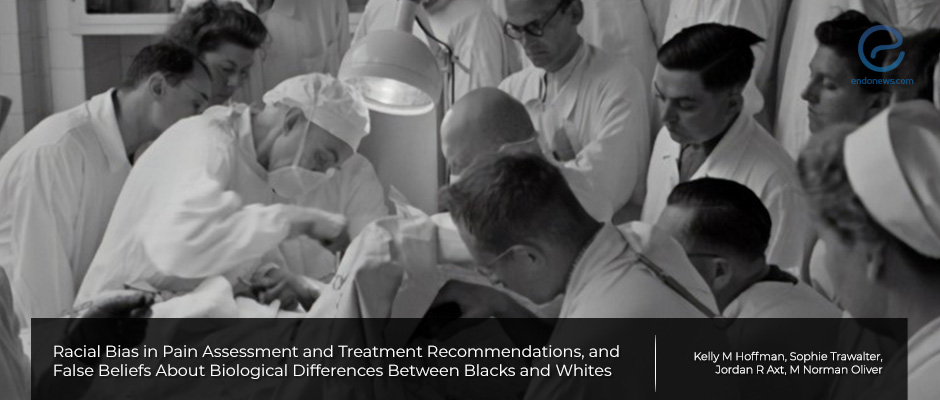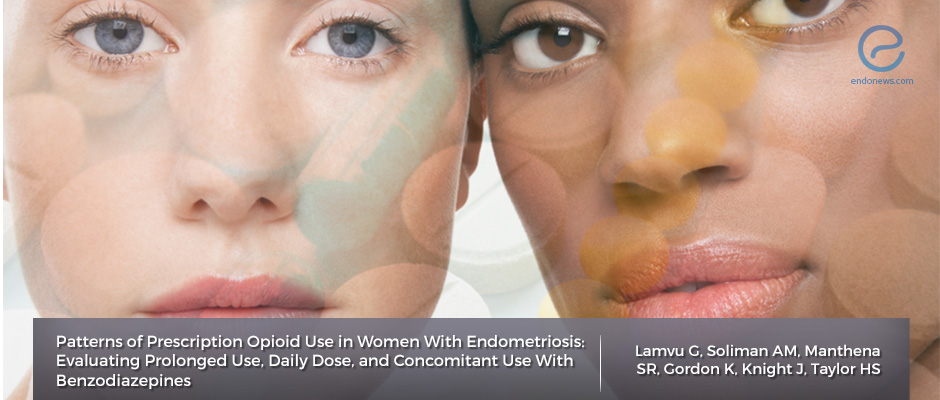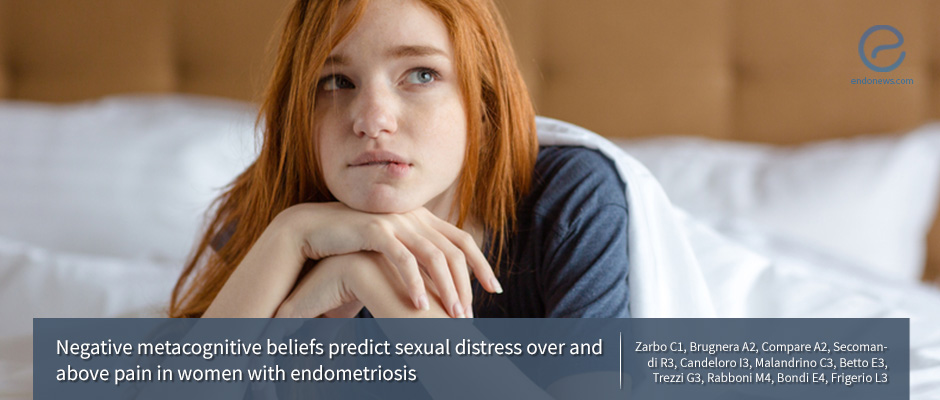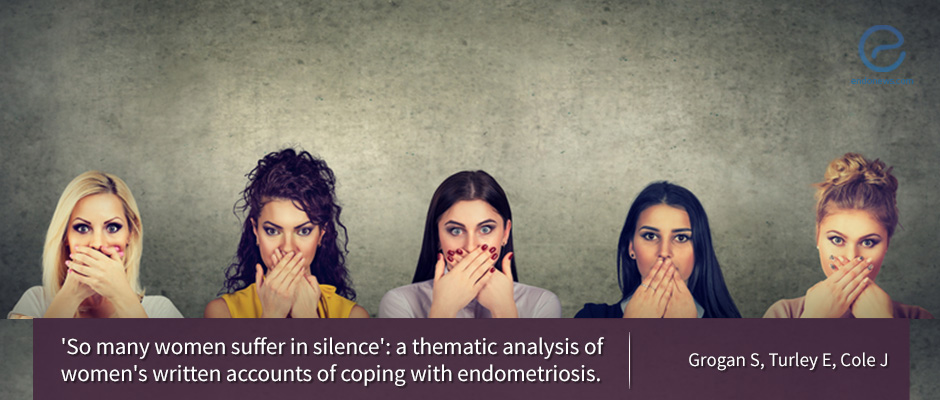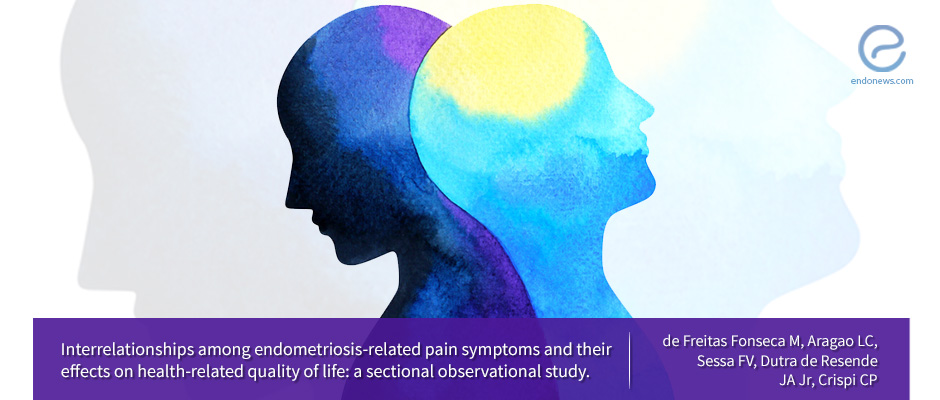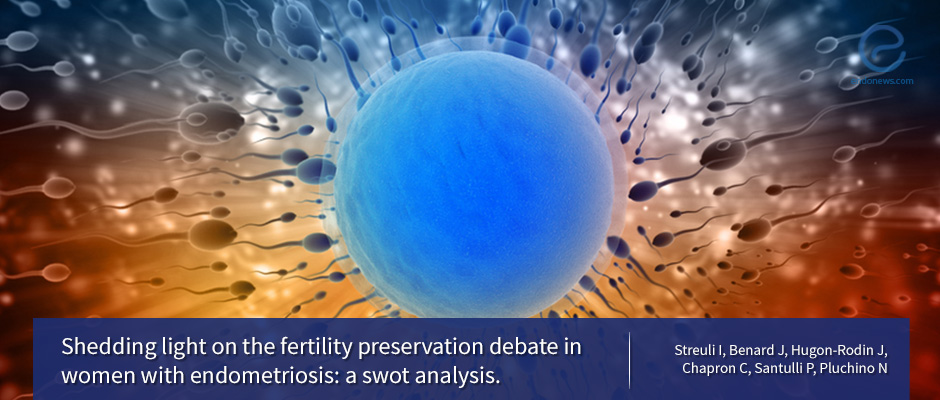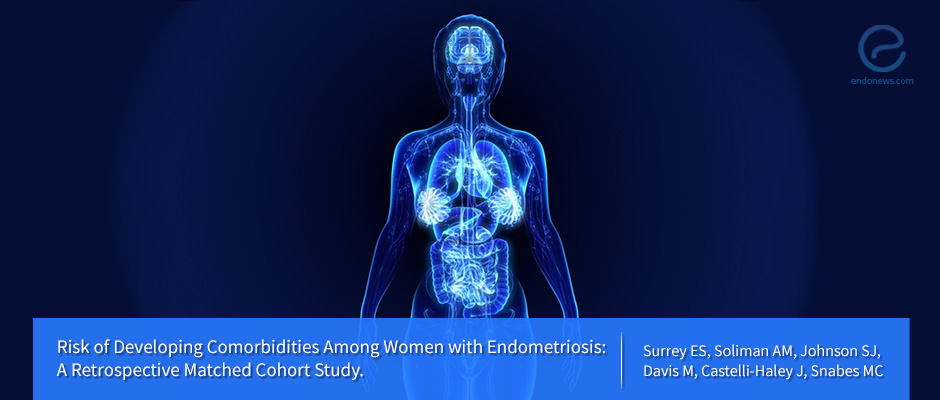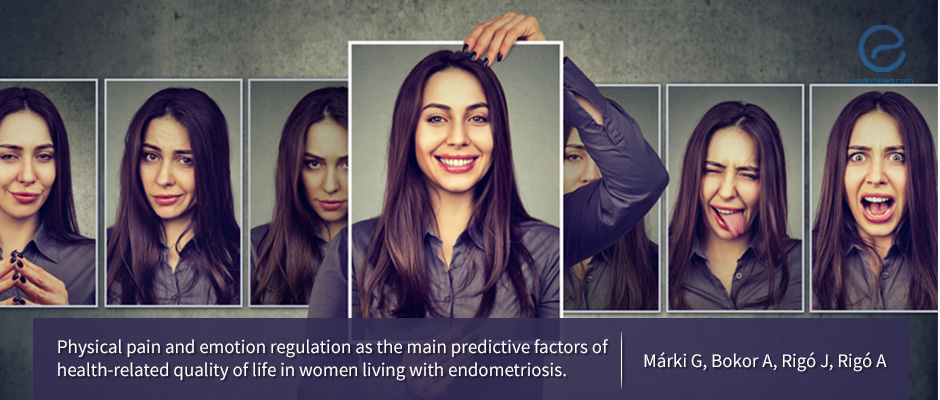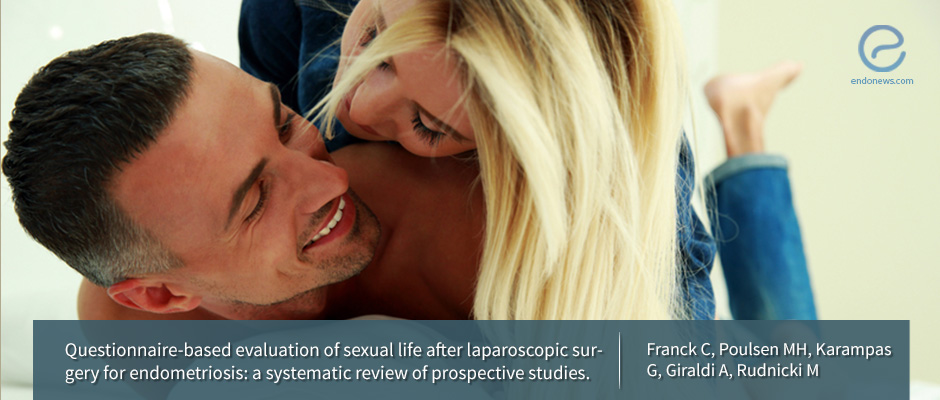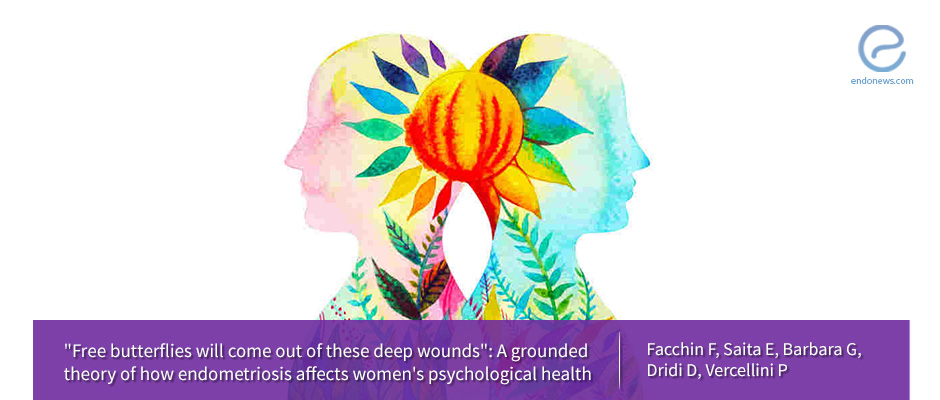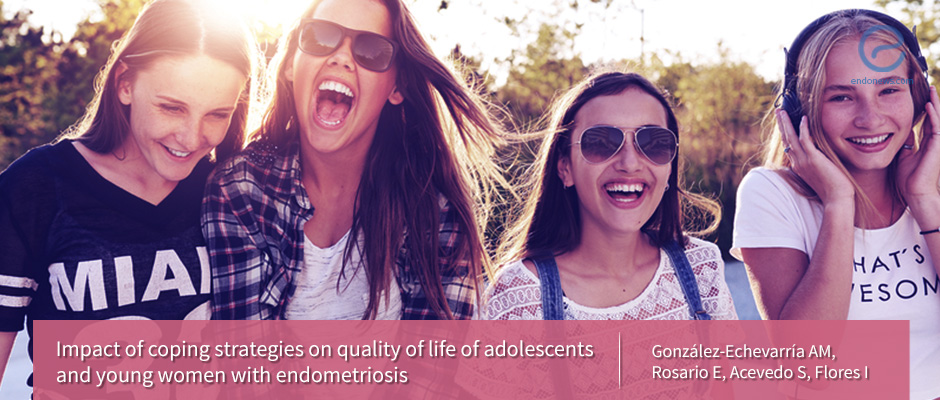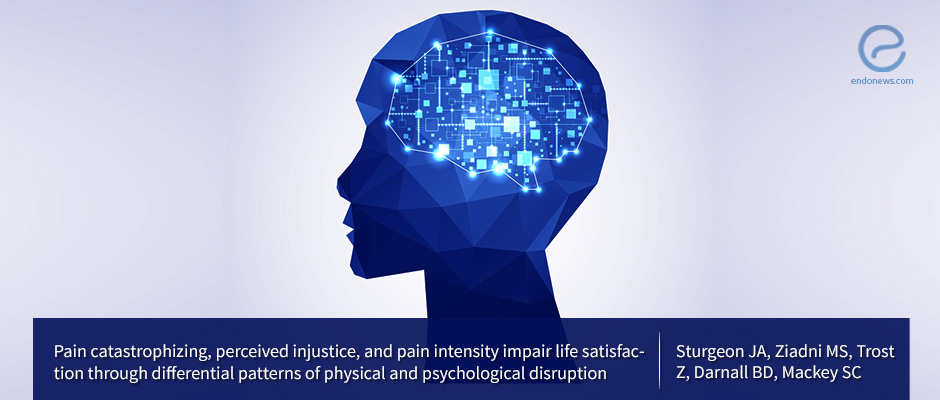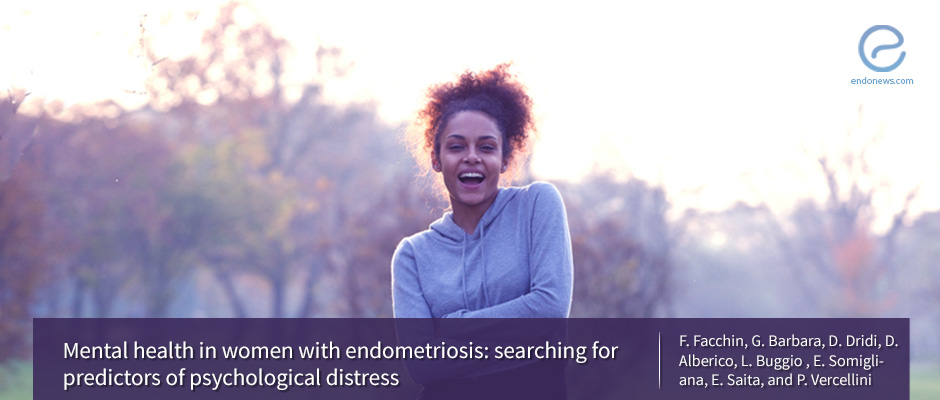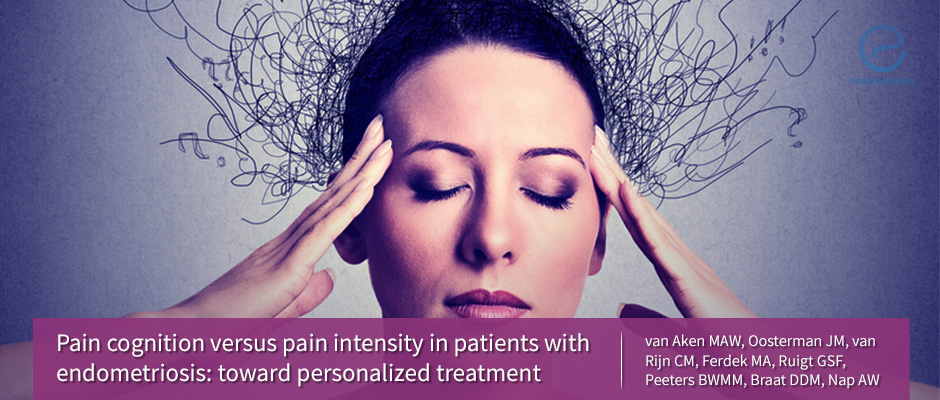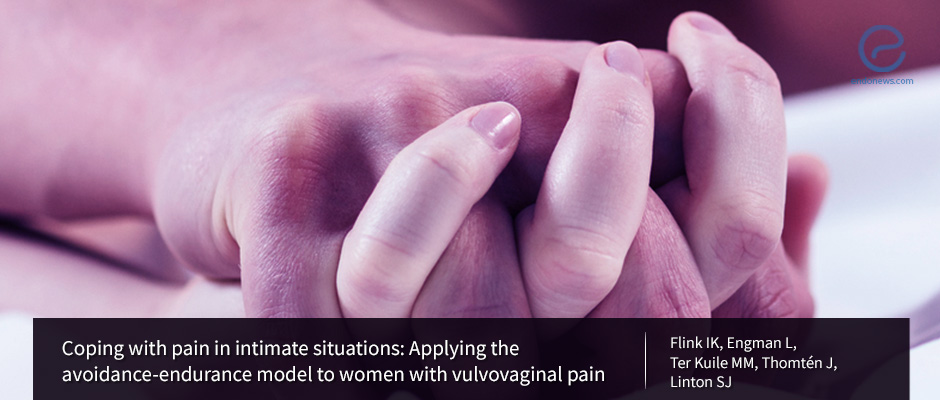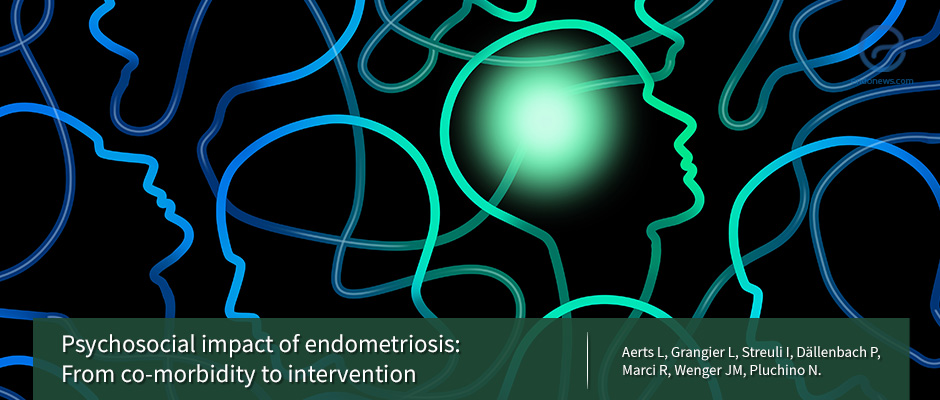 Deniz Kocas
Deniz Kocas
Deniz Kocas is a Doctoral Candidate in Clinical Psychology at The New School. She has a background in pharmacy and health policy, and has worked within the National Health Service in England and the pharmaceutical sector in Belgium and Turkey.
Racial Bias in Pain Assessment and Treatment Recommendations
This study, published by Hoffmann et al. in the April 2016 issue of Proceedings of the National Academy of Sciences, found that false beliefs about biological differences between blacks and whites are associated with the perception that black people feel less pain than do white people resulting in inadequate treatment recommendations for black patients’ pain. As some studies suggest that racial bias in pain treatment may result from racial bias in perceptions of others’ pain, the researchers in this study investigated whether racial bias in…
Key Points Lay SummaryPrescription Opioid Use in Women With Endometriosis
In this study, researchers examined opioid use, opioid prescribing patterns, and timing of the first opioid prescription in endometriosis patients compared with matched women in the control group without endometriosis. A retrospective analysis of Optum Clinformatics Data Mart was conducted. This database contains data from over 150 million individuals and is used by healthcare providers for reimbursement of a service or product provided. Women with endometriosis were matched to women without endometriosis, the control group, based on factors such as…
Key Points Lay SummarySexual distress, metacognitive beliefs, and endometriosis
In this study, researchers from the University of Bergamo in Italy investigated the link between sexual distress and psychological and cognitive factors in women with endometriosis. Compared to the general female population, women with endometriosis have a nine-fold increased risk of experiencing dyspareunia. Dyspareunia has a negative effect on women’s quality of life and has been associated with sexual dysfunctions such as decreased sexual desire, arousal difficulties, and orgasm disorders. Women with endometriosis have two times more occurrence of sexual…
Key Points Lay SummarySuffering in Silence
Although quantitative and qualitative studies have established that endometriosis has a negative impact on multiple domains of quality of life, the majority of qualitative studies to date have used focus groups and interviews. These data collection methods may limit disclosure of experiences due to face-to-face interaction with a researcher. Conversely, open-ended online questionnaires allow space and time to expand answers and offer anonymity. This study, conducted by researchers at Manchester Metropolitan University in the United Kingdom, is one of few…
Key Points Lay SummaryEndometriosis, Pain and Quality of Life
Although studies show that pain in endometriosis is associated with decreased health-related quality of life (HRQoL), details as to which pain symptoms contribute to such a decline have not been explored. For the first time in this study, researchers from Rio de Janeiro, Brazil, explored the correlation between different pain symptoms and different domains of women's health-related quality of life (HRQoL) in their recently published paper published in Obstetrics & Gynecology Science. The results demonstrated that dysmenorrhea and chronic pelvic pain were the…
Key Points Lay SummaryShedding light on the fertility preservation debate in women with endometriosis: a swot analysis.
There is little known about fertility preservation in women with endometriosis. Researchers from France and Switzerland conducted a SWOT (strengths, weaknesses, opportunities, and threats) analysis to better understand this topic. Applied to clinical problems, SWOT gives a thorough analysis of a given clinical question and can help in decision making and strategic planning. The authors found several strengths regarding evidence available on fertility preservation in women with endometriosis. They identify that two main advances have had a major impact on…
Key Points Lay SummaryComorbidity Risks Among Women with Endometriosis
Evidence demonstrates that endometriosis is associated with higher rates of conditions such as ovarian and other gynecological cancers, thyroid cancer, autoimmune diseases, asthma/atopic diseases, and cardiovascular diseases. However, as findings remain fragmented, there is a need to assess these associations based on the same large, contemporary cohort. Researchers from the United States conducted this study to determine the incidence of developing potentially common comorbidities among patients with and without endometriosis, hypothesizing that patients with endometriosis have a greater comorbidity burden.…
Key Points Lay SummaryPain and emotion regulation predict health-related quality of life
Studies have established that pain in endometriosis is negatively correlated with HRQL and that endometriosis is associated with psychological problems, anxiety, depression, distress and poor coping ability. It has been observed that some mental conditions associated with endometriosis are modulated by emotion regulation, defined as “goal-directed processes functioning to influence how we experience and express the intensity, type, and duration of emotion”. Researchers from Budapest, Hungary conducted this study to analyze whether emotion regulation and psychological stress (anxiety, depression, and…
Key Points Lay SummaryQuestionnaire based evaluation of sexual life after laparoscopic surgery for endometriosis
Researchers from Denmark note that laparoscopic surgery is being increasingly used for the treatment of endometriosis due to its safety and effectiveness. However, treatment success is often evaluated through follow-up on the experience of pain, leaving other important aspects of the condition such as sexual function, overlooked. When sexual function is analyzed, it is done so through several different questionnaires, as there is no universal questionnaire to evaluate the sexual function of women with endometriosis. This study evaluated the effect…
Key Points Lay SummaryComparing opioid and nonopioid therapy for chronic pain
Over the last few decades, North-America and Europe show continued increase in prescription rates of opioids. Evidence shows significant pain reduction with opioids in the short term compared to placebo, however whether opioids are superior to non-opioids even in the short-term and whether long-term treatment with opioids is effective is still under debate. Therefore, researchers from Germany investigated the long-term benefits of opioid analgesics (OA group) for chronic pain in comparison to nonopioid non-opioid analgesics (NOA group). Findings showed that…
Key Points Lay Summary“Free butterflies will come out of these deep wounds”: A grounded theory of how endometriosis affects women’s psychological health
Researchers from the Catholic University of Milan and the University of Milan note in Journal of Health Psychology that although qualitative research describes the negative impact of endometriosis on quality of life and psychological well-being, studies that analyze individual differences between women are lacking. Therefore, they conducted a grounded theory study aimed at providing a broader understanding of how endometriosis affects women’s psychological health, specifically looking at differences between distressed and non-distressed women. Both distressed and non-distressed participants reported common…
Key Points Lay SummaryImpact of coping strategies on quality of life of adolescents and young women with endometriosis.
González-Echevarría et al. report in J Psychosom Obstet Gynaecol. that symptoms caused by endometriosis have been found to be associated with negative quality of life (QoL) in women with endometriosis and the type of coping strategies adopted by patients have been shown to impact QoL. Coping strategies are categorized as either ineffective (maladaptive) or effective (adaptive) in managing stressful life events. The authors revealed that when dealing with symptoms of a chronic and painful disease, it has been shown that the adaptive…
Key Points Lay SummaryPain catastrophizing, perceived injustice, and pain intensity impair life satisfaction
Cognitive appraisals have been shown to have an effect on the experience of pain. Notably, perceived injustice and pain catastrophizing have been shown to play a role, but are rarely examined together. In addition, variability in appraisal processes has been shown to be related to adjustment and recovery outcomes, such as depression and pain-related interference, which may impact the quality of life. Therefore, the authors of this study from the University of Washington, Stanford Systems Neuroscience and Pain Laboratory and the University of Alabama; investigated the…
Key Points Lay SummaryPredictors of psychological distress
Studies have now established that endometriosis can negatively impact mental health and quality of life, however, some studies show that not all women with endometriosis are necessarily more distressed than healthy women. This suggests that individual differences may explain women’s’ subjective experience of endometriosis, which could include an individual women’s self-esteem and self-efficacy. This study by Faccin et al. from Italy, published in the journal "Human Reproduction" entitled "Mental health in women with endometriosis: searching for predictors of psychological distress"…
Key Points Lay SummaryPain cognition and pain intensity are negatively associated with health-related quality of life
Pain is a personal experience and is different for every individual. Catastrophizing, fear of pain, and hypervigilance to pain are important factors that contribute to pain perception. These factors are described as pain cognition and refer to the negative appraisal of pain, including anxiety surrounding the pain and a constant focus on the pain experience. The effect of pain cognition can sometimes be so severe that it interferes with the effectiveness of medical therapy. The authors hypothesized that pain cognition…
Key Points Lay SummaryAmbiguous experience: Destructive or Constructive
A diagnostic delay of 4-12 years is reported among women with endometriosis, which is explained by the lack of awareness of endometriosis as a medical condition among patients and healthcare professionals. In searching for a diagnosis, patients encounter many healthcare professionals (HCPs), however, little research has explored their experiences. The purpose of this study was to provide an insight to the healthcare experiences of women with endometriosis. Nine women with endometriosis were interviewed and were analyzed using an interpretative phenomenological…
Key Points Lay SummaryCoping with vulvovaginal pain in intimate situations
Chronic vulvovaginal pain has a serious impact on women’s lives, affecting daily activities including sexual activities. Avoiding sexual activity has been shown to be a central coping strategy in other pain populations and has also been seen in women with vulvovaginal pain, but there is limited support for the impact over time. Avoidance behavior is important as it mediates the link between pain catastrophizing and pain-related outcomes. An alternative coping strategy for women with vulvovaginal pain considers endurance: instead of avoiding…
Key Points Lay SummaryPsychosocial impact of endometriosis
In this review article, researchers from Switzerland report a review to outline the consequences of endometriosis on the psychological, sexual, and interpersonal functioning of both patients and their partners, in the journal Best Practice & Research Clinical Obstetrics and Gynecology. Women with endometriosis experience a wide range of pelvic pain, which has four key consequences on patients: psychological, sexual, relationship, and social. Women with endometriosis report heightened psychological distress, including higher levels of pain catastrophizing, stress and more depression and…
Key Points Lay Summary